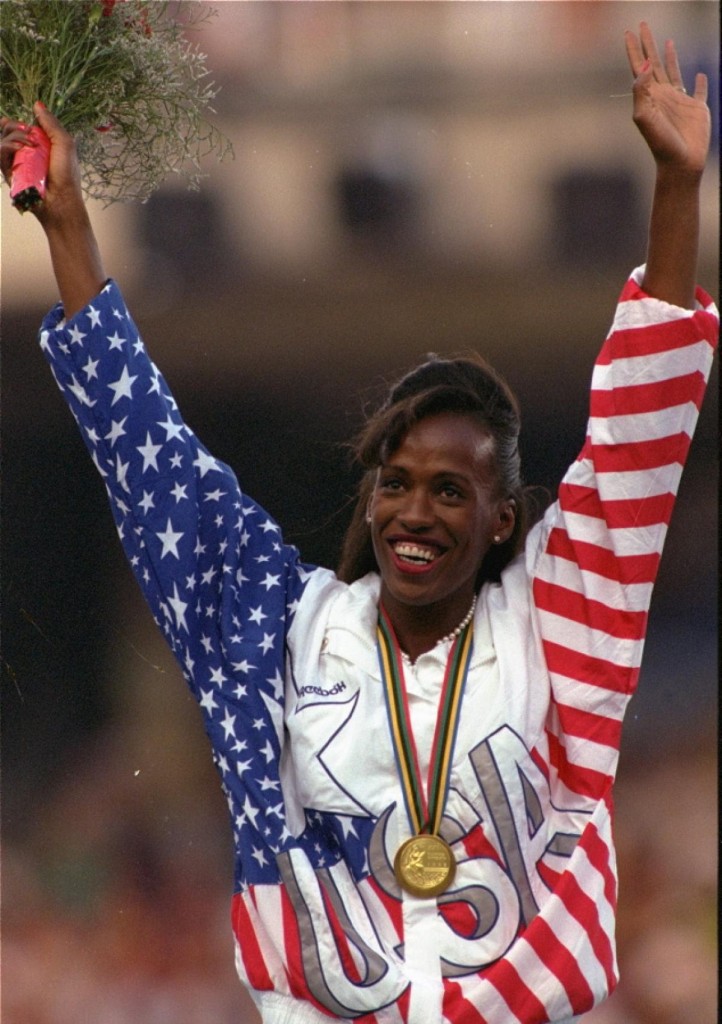Sometimes in sports and in life, the pioneers who’ve paved the way for others to succeed after them often are forgotten. The further an athlete is from their playing days, the more they seemed to get forgotten. In honor of Women’s History month, we’ll take a look back at two legendary women Althea Gibson and Jackie Joyner Kersee.
These two women excelled at their sport and helped pave the way for athletes of today. When people have conversations about the greatest athletes of all-time, Gibson and Kersee have to be in the conversation.
Althea Gibson (1927- 2003) – Gibson was born on August 25 1927 in Clarendon County South Carolina. In 1930, Gibson’s parents moved the family to Harlem where Gibson would take up paddle tennis during her early childhood and at the age of 12 became the New York City women’s paddle champion.
In 1940, a group of Gibson’s neighbors took up a collection to finance a junior membership and lessons at the Cosmopolitan Tennis Club in the Sugar Hill section of Harlem. She would win her first tournament which was sponsored by the American Tennis Association, an African-American organization. This would be the first step on what would become one of the greatest careers in women’s tennis career.
Despite the struggles of dealing with racism and prejudice, Gibson would go onto to become one of the greatest tennis players to ever grace the court. In 1956, she became the first African- American to win a Grand Slam event, the French Open singles title. In that same event she won the doubles championship when she partnered with Briton Angela Buxton. A year later Gibson would win tennis’s most prestige tournament as she won both the singles and doubles Wimbledon titles. She won the singles title by defeating Darlene Hard in straight sets. Ironically, for the doubles title her partner was Hard and they defeated Marvis Bevis Hawton and Thelma Coyne Long in straight sets.
She would finish her career with five singles Grand Slam Titles, five doubles titles, and 1 mixed doubles titles, and in 1971 she was inducted into the International Tennis Hall of Fame.
On September 28, 2003, Gibson died of respiratory failure in East Orange, New Jersey but she left an undying legacy in tennis. Both Venus and Serena Williams have both given credit to Gibson for paving the way for the success they’ve achieved.
Jackie Joyner-Kersee (1962-) Joyner-Kersee was born March 3, 1962 in East St. Louis, Illinois. Sher was perhaps the greatest pure female athlete that ever lived. She excelled in track and field at an early age. In 1980, she qualified for the finals in the long jump at the 1980 Olympic Trials, finishing 8th. If the United States had not boycotted the 1980 Olympics Joyner-Kersee may have won her first Olympic medal at the age of 18.
She would earn her first Olympic medal four years later at the 1984 Olympics by winning the silver medal in the heptathlon. Although Joyner-Kersee won her first Olympic medal, she seemed disappointed considering she was the favorite to win the gold medal but finished 5 points behind Glynis Nunn.
She would work harder over the next four years, determined to show that she was the best female athlete in the world. At the 1986 Goodwill Games, she became the first woman to score over 7,000 points in a heptathlon event, finishing with 7,148 points. Then at the 1988 Olympics in Seoul, Korea Joyner-Kersee would win the gold medal in the heptathlon and in the process set a new world’s record with 7,291 points. She would also win the gold medal in the long jump by setting an Olympic record with her jump of 24 ft. 3 1⁄4 in.
She would once again win the gold medal in the heptathlon at the 1992 Olympics as well as the bronze medal in the long jump. Her attempt at winning three Olympic heptathlons in a row at the 1996 Olympics came to an abrupt end as she had to pull out of the competition after reinjuring her hamstring during the 100 meter hurdles. She would however manage, to will herself in competing in the long jump and won the bronze medal on her final jump. This would be the last time Joyner-Kersee would compete in the Olympics. She finished her Olympic career with six medals (3 gold, 1 silver and 2 bronze). She also won four gold medals in World Championship competition. These accolades are why Sports Illustrated for Women named Joyner-Kersee the greatest female athlete of the 20th Century. What’s even more amazing about all of her accomplishment, is that she did all of this while battling asthma.
It’s safe to say that we will perhaps never see the likes of Jackie Joyner- Kersee again. She was truly a once in a lifetime athlete.
—

